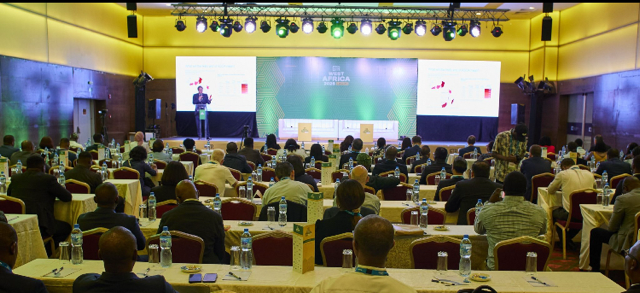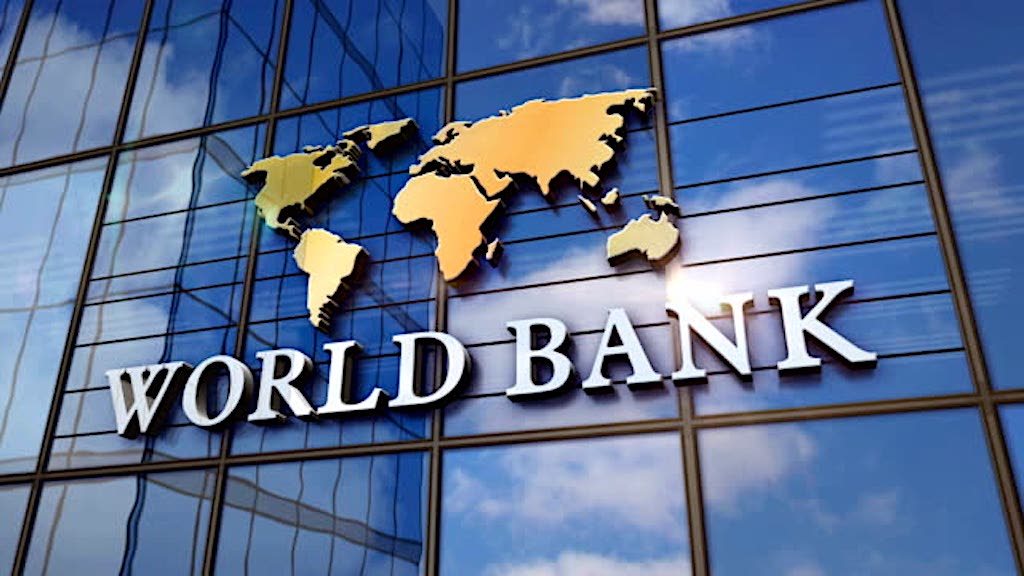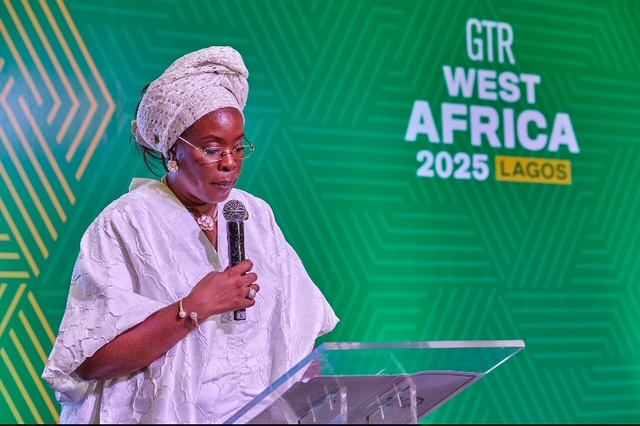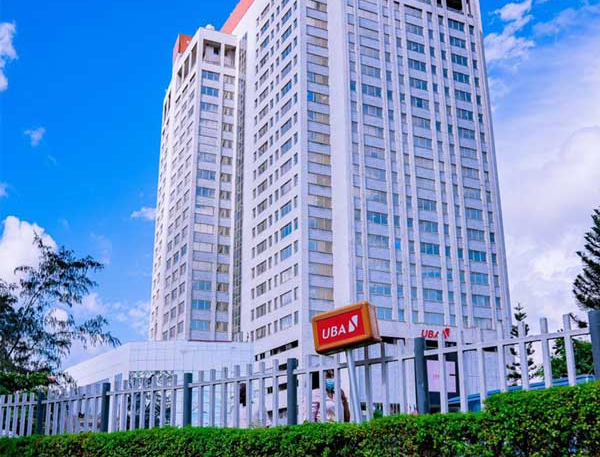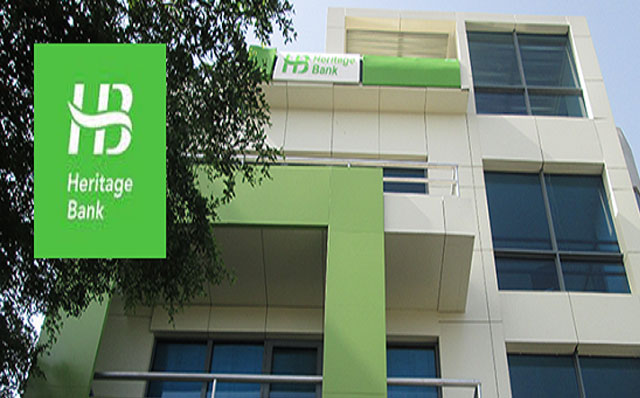In a chat with newsmen at the conclusion of the International Monetary Fund and World Bank Group spring meetings in Washington DC, the Central Bank of Nigeria (CBN) Governor, Olayemi Cardoso, highlighted the significant strides made in Nigeria’s economic reforms. Cardoso underscored that the country’s bold policy shifts have not only strengthened the nation’s economic fundamentals but have also restored investor confidence. He noted that these reforms, combined with efforts to enhance Nigeria’s financial stability and improve foreign exchange inflows, are positioning the country for sustainable long-term growth, despite global economic uncertainties. Eromosele Abiodun and Nume Ekeghe present excerpts
Can you speak on the outcomes of the IMF/World Bank Spring Meetings?
These Meetings come at a time of heightened global uncertainty an era that is testing the resilience of economies worldwide and underscoring the urgent need to build stronger safeguards against external shocks. Against this backdrop, our delegation used the meetings as a platform to spotlight Nigeria’s bold economic reforms and explore further measures to enhance macroeconomic stability, strengthen our financial system, and drive inclusive growth for all Nigerians. In the lead-up to the Meetings, we convened a high-level global forum at Nasdaq MarketSite in New York. The forum brought together top-tier global investors, senior financial stakeholders, and influential diaspora leaders to engage in a candid discussion on Nigeria’s macro-economic outlook and reform trajectory. The forum focused on facts and the future an open and constructive dialogue aimed at reviewing our progress, addressing challenges, and forging stronger, long-term partnerships. Underpinning this engagement was a clear objective: reaffirming the Central Bank of Nigeria’s role as a credible, globally respected institution, trusted internationally and committed to excellence at home. I am pleased to share that the New York forum delivered powerful outcomes. It significantly bolstered investor confidence in Nigeria’s market fundamentals, with leading voices from across the global financial system going on record to affirm the country’s economic progress and renewed standing as a compelling investment destination. This growing confidence is further reinforced by Fitch’s recent upgrade of Nigeria’s credit outlook – underscoring international recognition of our disciplined reforms and the bold steps we are taking to restore macroeconomic stability. Ultimately, none of these developments are abstract. They reflect the outcome of consistent policies which have brought about stability in our economy, setting the stage for investments and growth. Thanks to the steps taken over the past 18 months, we have strengthened our monetary buffers and positioned Nigeria to better withstand external shocks. Indeed, the macroeconomic stability we are beginning to see today would not have been possible without these decisive actions. We recognise that inflation remains the most disruptive force to the economic welfare of Nigerians. Our policy stance is firmly focused on bringing inflation down to single digits in a sustainable manner over the medium term. Our goal is to restore price stability, protect household purchasing power, and lay the foundation for long-term investment.
Another key pillar of our reforms is a market-determined foreign exchange regime. We have embraced market-driven pricing for the naira, significantly enhancing transparency and restoring investor confidence. Again, thanks to disciplined reforms and policy clarity, the naira has stabilised at a more sustainable level against the U.S. dollar. The once-wide gap between the official and parallel market rates has all but disappeared, a first in Nigeria’s recent history, and speculative arbitrage has all but vanished. This renewed stability has restored confidence and spurred autonomous inflows through formal channels. These inflows are diversifying our foreign exchange sources beyond oil. Nigeria’s external buffers have also strengthened considerably. Our foreign reserves now exceed $38 billion, providing nearly ten months of import cover. This robust buffer enables us to better withstand external shocks – whether from declining oil prices or global financial turbulence – thereby safeguarding our economy. In 2024, Nigeria recorded a balance of payments surplus of $6.83 billion, the strongest in many years, driven by rising exports and renewed capital inflows. At the same time, we are enhancing the strength of our financial sector. The banking sector recapitalisation is well underway, with strong momentum and stakeholder alignment, and will ensure that Nigerian banks are fully equipped to support the real economy with greater scale, stability, and capacity. At these Spring Meetings, our development partners expressed their confidence in Nigeria’s trajectory. Feedback from global investors and the Nigerian diaspora has likewise been overwhelmingly positive, reflecting growing alignment with our economic direction.
Nigeria is increasingly recognised as a rising economic force, admired for the resolve shown in implementing difficult but necessary reforms. These achievements, while encouraging, only strengthen our resolve to press forward. We will not be complacent. Instead, we will redouble our efforts to ensure these positive trends are sustained. I wish to thank the Honourable Minister of Finance and Coordinating Minister of the Economy, Mr. Olawale Edun, for his invaluable partnership. Our progress is anchored in strong collaboration and a shared commitment to Nigeria’s economic renewal. To all Nigerians, these reforms are not easy, but they are delivering results. We have moved from a position of vulnerability toward one of growing strength, and our economic trajectory is beginning to turn positive. We return home mindful of global challenges yet filled with renewed commitment to stay the course and build on our gains in stability and resilience.
The IMF Managing Director mentioned that monetary policies should be local and tailored to each country’s needs. What key lessons or takeaways are you drawing from that guidance?
As far as monitoring policy is concerned, clearly, For the central bank being the custodians of stability, a number of things have come out that are important for us to take cognisance of. One of course, is the fact that we are entering a period of heightened uncertainty, and that one size doesn’t fit all in terms of trying to overcome whatever challenges come. One of the things that I have found very useful over the past months is meeting colleagues, exchanging ideas, and seeing how they have been able to tackle problems and challenges they’ve had. And I think the message that has come out now is that more than ever before, you’ve got to look at your peculiar situation because the effects of the uncertainty vary widely from one place to the other.
Riding on top of that is also the response to whatever challenges we see and whatever risks we see. I think the message that has come out there is that it is critically vital to respond with agility and not find yourself paying the price of not responding in the manner, in the way and manner that you should. And I think we are a case in point, frankly, because these reforms that we have done, I dare say that if we hadn’t done them on a timely basis, it would have been very difficult to begin to address some of those things at a period of heightened uncertainty. You cannot afford to be slack and right now, going forward, there’s a need for heightened surveillance. In other words, you’ve got to be proactive in terms of how you see the future and what tools you deploy to ensure that your function as a custodian of stability does not get inappropriately compromised or lack of doing that. So, there’s need to be forward-looking and not wait until certain things happen before you start taking appropriate action. Thankfully, the responses that we have had in terms of building offers as a result of the things we have done are useful going forward.
Cardoso: At the investors’ forum, the CBN was commended for timely data release. When you return home, what steps will you take to address any gaps in the data release timeline and improve coordination with fiscal authorities?
On the issue of data, again, I was pleased that what came out from the investor roadshow was the fact that they were seeing the promptness of data coming from the central bank, and had not seen that level of promptness and transparency anywhere else in the world. So, I think that is a good thing, and all we will do is continue to make data the center of decision-making within the central bank. And I remember when I was called to the Senate before I was appointed the CBN governor, I did say, and I did commit, that decisions will be data-driven and evidence-based. So, this is part of that journey. We will only continue to strengthen what we have, and in conjunction with our development partners, because we have spoken to a number of them with respect to how to give us technical assistance to continue to develop the tools we are using and make them even more, stronger and fit for purpose. That of course, gives better credence to the monetary policy decisions that we make and helps along the road of transparency and accountability
Where do we currently stand on remittance flows, given your strong push to enhance them through your engagements, and what risks do you foresee for remittances in the short to medium term amid global uncertainties?
On the issue of remittance flows, we can see here that the journey that we started a while back is beginning to pay off. Remittance proceeds have contributed towards the diversification of foreign exchange proceeds, and there’s still a way to go. If you look at the indices of some countries, this is all they depend on. They do nothing else but just remittances. Talk less of a country like ours that have other channels of foreign exchange revenues, and hopefully, we’ll be building more of that. So, you can see that if we concentrate on these particular sectors, which, at one point in time, really seemed like nothing, but are now gaining gated traction. The future is bright. I’m pleased that the banking system has come up with certain products that are meant to reach the non-resident Nigerians. They have products whereby non-resident Nigerians can invest in both naira and dollars and at the end of that investment, they can repatriate their money back as they like. Now, part of the feedback I am getting since the past week is that the diasporas are very happy with this development, because for many of them, they now look for the opportunity for to diversify their investments, and now they have seen that you can bring in your money, you can take it out. As I said, the banks are coming up with products that will enable them to do things way beyond what they were doing before and with minimum risk, I believe that the developments that we are seeing in the remittance space is positive development.

